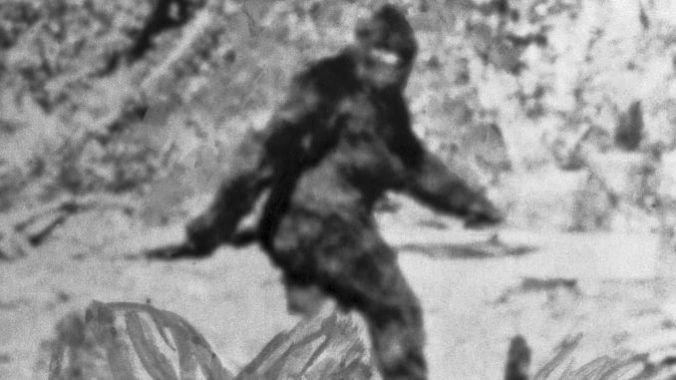Bigfoot for Skeptics: A High Strangeness Podcast that’s Normalizing the Paranormal
Photo courtesy of Getty Images
It’s no coincidence that, in the last few years, our collective appetite for the unexplained has grown. History has shown that during times of intense stress people start looking for answers beyond the “normal” realm. It happened during reconstruction when people desperate for closure from their losses during the Civil War turned to spiritualism. It happened in the 1970s with the Vietnam war and the rise of a wave of paranormal celebrities like Ed and Lorraine Warren, who investigated the Conjuring house and the allegedly possessed doll Annabelle. It happened after 9/11 with Ghost Hunters and the huge explosion of paranormal television shows. And now it’s happening during the pandemic, when people are reporting an unusually high level of supernatural phenomena, especially in their homes.
Paranormal entertainment—not fictional, scripted productions, but allegedly real accounts of the unexplained—is more mainstream than it’s ever been. But even the tv shows starring celebrities with broad appeal (see Kesha’s new show Conjuring Kesha) are mostly in-world, created by and for an audience that’s already open to—and often looking for—things that go bump in the night.
That’s why the podcast Bigfoot Collectors Club has established such an interesting niche. It bridges a gap between people who don’t own ghost hunting equipment or have books by John Keel on their shelves, and paranormal topics that they might not seek out, but are, by and large, at least a little interested in. The podcast is hosted by three friends with a shared interest in high strangeness: actors Michael McMillian (True Blood, Crazy Ex-Girlfriend) and Bryce Johnson (Oppenheimer, Expedition Bigfoot), and musician/director Riley Bray (TOMI, Spindrift).
Rather than talking exclusively to professional paranormal investigators and bigfoot hunters, BCC often brings on guests who have no expertise in the supernatural realm. They’re regular people—often actors like Rachel Bloom and comedians like Jen Kirkman—who are just there to have a conversation about weird stuff. As often as not, the guest is a skeptic who pokes holes in the featured story of the day, regardless of whether it’s about ghosts, aliens, cryptids or any other manner of high strangeness.
“I think it’s a great way to bring people in,” Johnson says. “A lot of these paranormal podcasts and shows, that’s really all they do, speak with paranormal experts. And I think we were all like, ‘we’re in the entertainment business, let’s come at it from that angle.’”
What they’ve found is that the people who are more skeptical are often the ones who open the door to candid conversations about strange experiences.
“It feels like safer in a way to get into it,” Bray says. “I think when you can laugh a bit, it’s a way of encouraging people to question their own experiences and their own reality. It has this feeling of sitting around a campfire and swapping stories and being like, ‘Oh my God, you experienced that too.’”
As a person who’s interested in the paranormal, and has written about it, I’ve witnessed that effect myself. When I mention any of those stories in casual conversation, the person will ask me a question or two about what I’ve seen, and then always, without fail, will share a story about their own experiences. Maybe it was a weird “coincidence” when the person knew the minute something had happened to a loved one, or waking up from a sound sleep to feel someone sitting on the edge of their bed, even though no one was there.
-

-

-

-

-

-

-

-

-

-

-

-

-

-

-

-

-

-

-

-

-

-

-

-

-

-

-

-

-

-

-

-

-

-

-

-

-

-

-

-








































